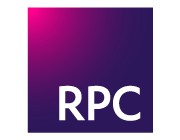Summer 2025
Latin and Spanish
University of St Andrews
What work did you get involved with on the vacation scheme?
I conducted legal research, examining precedents, judgments and general information to contribute to case preparation. I also completed some proofreading and drafting tasks. This included drafts of emails and letters to clients, as well as internal memos for the team, summarising documents and outlining client situations. One of the highlights of my experience was attending court, which offered a fascinating insight into legal proceedings.
What was it about the firm that attracted you to apply to its scheme?
I attended a number of events during the application process, and everyone I met from RPC seemed to not only be good at and interested in their work, but to genuinely enjoy working at the firm. RPC also stood out to me as being well respected across several practice areas in which I’m interested. In particular, I've always had an interest in contentious work and litigation; RPC has a strong reputation in this area, and I noticed that the firm was involved in lots of the big cases I’d read or heard about in the news. At one point, someone mentioned that, of all the firms in London, RPC has the highest number of hours in court.
Did your attendance on the scheme support your application for a training contract?
The work I completed throughout the vacation scheme was used as a form of assessment for the training contract. Because of this, I felt I was able to get stuck into a broad range of work and demonstrate much more across the two-week period than would be possible on one assessment day. This works both ways, in that taking part allows you not only to show what you’d bring to the firm as a trainee, but also gives you time to develop a clear idea of what a training contract at RPC looks like. During the exit interview at the end of the scheme, we were asked to reflect on our experiences, with a particular emphasis on competency-based questions and how we’d developed legal skills and knowledge during our time at the firm.
What key skills did you develop during the scheme?
I found that time management was really important for balancing scheduled development sessions with the work assignments you’d been given. To get this right, it was helpful to get a clear sense of how long a task would take me to complete, making it possible to schedule my time effectively and be transparent about what work I was able to take on.
How did the scheme help you to understand the firm better as a business?
During the scheme, we were given a group-based task of brainstorming and pitching an AI tool to be used by the firm. A legal AI session led by one of RPC’s knowledge lawyers was a great way to learn about how AI was being adopted in RPC and the legal industry more broadly, as well as the benefits and risks of AI solutions. Making a business case for our AI proposal and working out where it could be most effectively used – drawing on our own experience as well as from conversations with lawyers in our teams – got us to explore in detail how RPC works from an organisational and business perspective.
Do you have any advice about networking while on the vacation scheme?
There was a big emphasis on networking. To make the most of the networking opportunities while at RPC, I’d suggest researching the firm’s practice areas and their work to get a solid foundation of knowledge: not only does this prepare you for the scheme more generally, but it also allows you to be intentional. You’ll get a lot more out of a networking opportunity – whether it’s an informal chat or a structured session – when you know what you’re trying to achieve from it! Knowing what you don’t know is just as useful, especially when it comes to thinking of questions in advance. It’s also important, though, to balance asking insightful and targeted questions with staying authentic. It may sound like a cliché, but to ‘be yourself’ is something that takes a bit of effort when you’re also trying to squeeze as much as you can out of a conversation, especially when you’re short of time. If you feel comfortable and show your true personality, it’s so much easier to have those conversations and build relationships from them.


